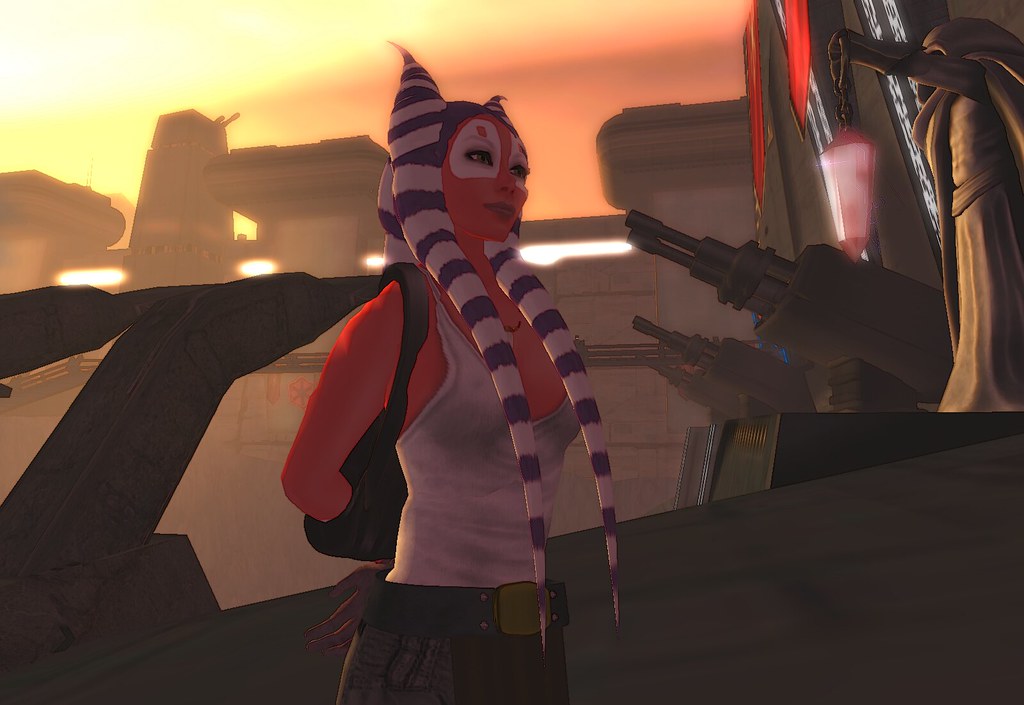Second Life is shrinking. It is a fact, no need to be a big expert of the Metaverse to see it.
The number of SIMs is decreasing everyday a bit more (most would say due to the extremely high fees). For instance, we have now about 44 SIMs popping when doing a search with SWRP while they were around 78 a year ago. But more important, the SL communities are shrinking too.
Now, a question could be : who is guilty?
And all blogs so far point to Linden Lab. It is true, the strategy of our beloved LL regarding the management of the Second Life communities if far to be optimal. Well, let's be fully honest: if they would want to kill Second Life they would not do it in another way. But still, I think the Lindens are not the only one to blame.
I think that part of the problem is us, the "old timers".
Some times ago, I was reading an interesting blog post. In substance, it was saying: "Do you know any "Resident" who achieved anything?" (for those non familiar with SL, people there used to have a first and a family name, but then few years ago, the family name was abolished and every new avatar is named "Resident"). The author of the blog was mentioning that during her three first months of existence in SL, she was doing a lot of amazing things (which by the way was true), and even more by six month of her second life. And that, yet any Resident would have reached an even slight level of SL celebrity due to their SL achievements.
Maybe. But something has to be said: when the old timers rezzed the first time, all doors were open. Anything was possible, Second Life was a new world, the (virtual) sky was the limit. Is it still the case ? I honestly doubt it.
Let me explain my mind a bit. SL communities were already quite difficult to penetrate. I am well placed to know it, since I explored a few of them from a (virtual) anthropological point of view (and I am still doing it, as my interest for Second Life as a premise of the Metaverse is not dead yet).
But since some time (let's say, a year or so), things are getting more and more complicated. It now gets simply impossible to reach the community for new comers without previous experience (at least impossible without putting really disproportionate efforts in the process). If we take back the example of Star Wars Role-Play SIMs. I wrote above that the number of SIMs appearing under SWRP keyword. But if the number of SIMs decreased, the traffic did not. Of course, mathematically, the TOTAL traffic decreased, but the individual traffic of individual SIMs (let's say, Little Mos Esley, Dantooine Jedi Enclave, or Nar Shaddaa) is stable. People are still here. The same people. We observe more endogamy. And that is not specific of Star Wars Role-Play, I am observing a few other communities of SL (role-play communities, or not role-play community). Endogamy is growing. As a correlate, new comers are having more and more difficulties to enter into the community. Another phenomenon I observed since some time: even in role-play SIMs, most of the conversations are now strictly carried on in IM (instant message function of Second Life), while before, most of the role-play was done in public chat. That too does not help new comers to integrate easily. Of course, it is not an absolute rule, some people are still incredibly nice to newbies as it used to be the case few years ago. But, more and more people are "newbie-unfriendly". Maybe not newbie-unfriendly, but "neutral" (in the sense of ignoring). And in a supposedly social environment, "neutral" equals "unfriendly" (does not however equal aggressive). As a result, communities in Second Life are shrinking. Even worse, I see more and more the very same persons in SIMs with somehow related thematic. Well, of course, it was always the case. But what I mean is that we see more and more ONLY those very same persons, once again, attesting the shrinking of the communities ... and logically reinforcing the bounds between the already present members, but making new players difficult to enter the game.
So, we all complain about the Lindens. But we should ask ourselves what changed in us. Because we are here since longer than others, we "saw all, did all, know all" of Second Life, and took all what it had to offer. We lost this amazed eyes that we had when we went out of Help Island the first time. And all of us, happily rich of the knowledge we got from our experience in Second Life, we take one of these three directions: 1) we leave it at all ... it was a good time but it is over now, 2) we stay there, but become cynical to newcomers, 3) we move to OpenSim or other platforms. None of these solutions is satisfactory. The third one particularly looks like a kind of a trap: OpenSim and other "Metaverse" platforms are kind of based on Second Life, or derived from it at least. Meaning, they mostly attract former users of Second Life. They are so far lacking the "democratical" dimension that Second Life had at a time. We again stay "between us", between "old timers", within a "Metaverse elite".
Now the real question is, do we want the Metaverse to really emerge ? If so, how could it really emerges if only kept by a restricted number of people ? To make it work, it should be open to the largest number of people, nope ?

















